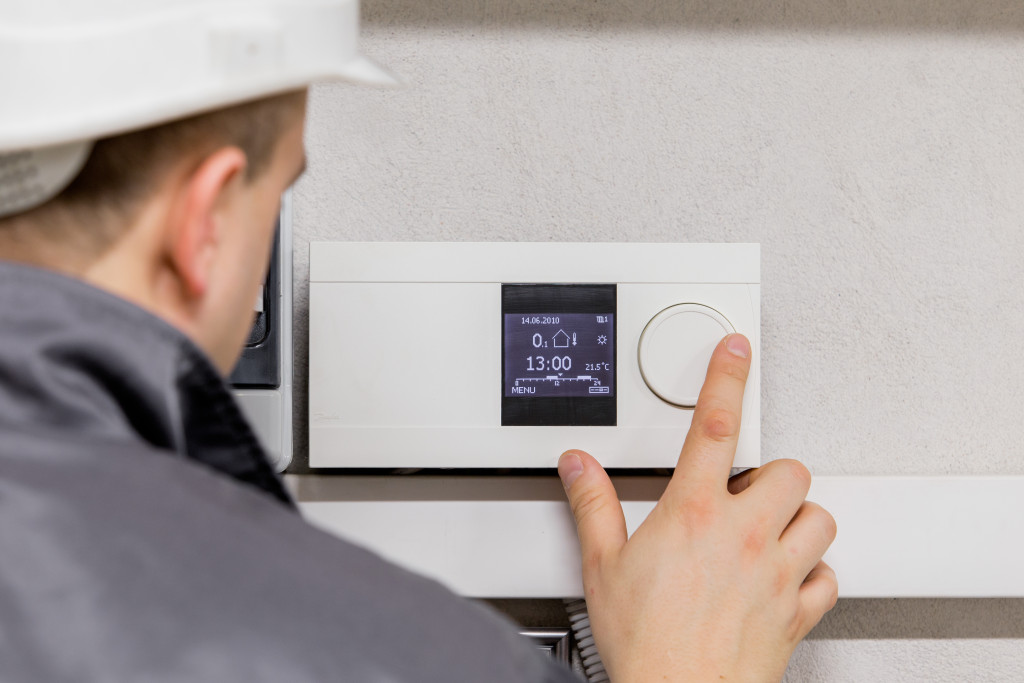In a cross-generational study surveying 913 Americans and Australians, 93% of them indicated a general concern for the environment. 77% of them also indicated that they were ready to learn how to live more sustainably. One of the biggest issues they want to help resolve is climate change. That means they are willing to consume less energy to make a difference.
If that’s the case, the future may look a little bleak for the HVAC industry. With sustainability turning into a lifestyle, other ways to cool down homes without AC are growing more popular. People are encouraged to use plants, attic fans, heavy-duty insulation, or even ice instead of an AC unit.
If you think that’s a reason to turn down an HVAC business opportunity, it shouldn’t be. Despite the global market’s increasing concern for the environment, the forecasts for the HVAC industry remain bright, as it turns out. The global HVAC market is predicted to grow at a 3.4% compound annual growth rate (CAGR) in the coming years. By 2030, the market could be worth $296.7 billion, which is considerably higher than this year’s $218 billion.
The Asia-Pacific region is currently considered the largest market, having foreseen to grow at a 4.6% CAGR by 2030. So, consider setting your eyes in Asia-Pacific locations to start your business.
Of course, it’s wiser and cheaper to target the domestic market first. However, with more Americans turning away from heavy energy consumption, marketing your HVAC systems to them may pose some challenges. Nonetheless, here’s how to sway their market with your HVAC systems:
1. Educate the Market about Sustainable HVAC Technology
When the AC first came to be, they weren’t the most eco-friendly machines. Until today, some people think that modern AC units still harm the environment. But that’s no longer true. HVAC systems have become greener than ever. In fact, many homes and businesses have taken advantage of new HVAC systems’ greener technology.
Green heating and cooling systems fall under two categories: passive and active. The former uses nature’s ability to heat or cool down spaces without furnaces or AC. It includes building homes with white or light-colored roofs to reflect the sunlight instead of absorbing it. This results in less energy consumption to cool down a space because the roofs have reduced the heat inside. On the other hand, active technology includes HVAC units that run on renewable energy sources, such as solar and geothermal power.
Participate in HVAC industry seminars for business owners as well. They give out and offer informative HVAC training modules with everything you need to know about the latest technologies. They’d also help you get to know your market.

2. Be an Eco-friendly Business Yourself
Consumers are seeking accountability from businesses. As a major contributor to waste generation, it’s indeed crucial for your company to be a part of earth-saving acts. Also, 88% of consumers want businesses to help them make a difference.
Selling green HVAC systems shouldn’t be your only way to become sustainable. You’re not truly sustainable unless your company also conserves water and energy and produces less waste. Consider going paperless as a start. Digitalize your receipts, invoices, and other documents that require multiple copies and safekeeping. Electronic files are easier to maintain anyway. They’re less likely to get lost, and they’d most definitely remain safe from a fire or a natural disaster. Plus, without papers, you won’t deal with excessive waste.
3. Be Aware of the Resources You Use for Running Your Business
Manufacturing, shipping, and distributing HVAC units leave significant environmental impacts. To make up for the carbon footprint you’re making, be aware of the other resources you use for running your business. Consider the energy source you use, for instance. If you’re still relying on fossil fuels, maybe it’s time to switch to solar power. Take a look at your office equipment and bathroom fixtures, too. Are they energy and water efficient enough? Perhaps you can use more laptops than desktops. Laptops can be operated unplugged, allowing you to cut down your electricity bills.
Since the pandemic has made work-from-home the norm, consider if your business can use the same business model. With fewer offices consuming high energy daily, the environment can have more time to recover from damages. Plus, when HVAC units are used at home, people tend to be more conscious of how they treat them. Employees tend to waste energy in an office because they know that they’re not paying for it.
Consider marketing your HVAC systems to homeowners instead of business owners as well. Since we’re all staying home more than ever, you’ll likely profit more from individuals.
Overall, the key to tapping into the sustainable market is adopting the same practices they do. By promoting that sustainability doesn’t have to come at the expense of comfort, you can create a future of people and businesses using their heating and cooling systems more responsibly.




